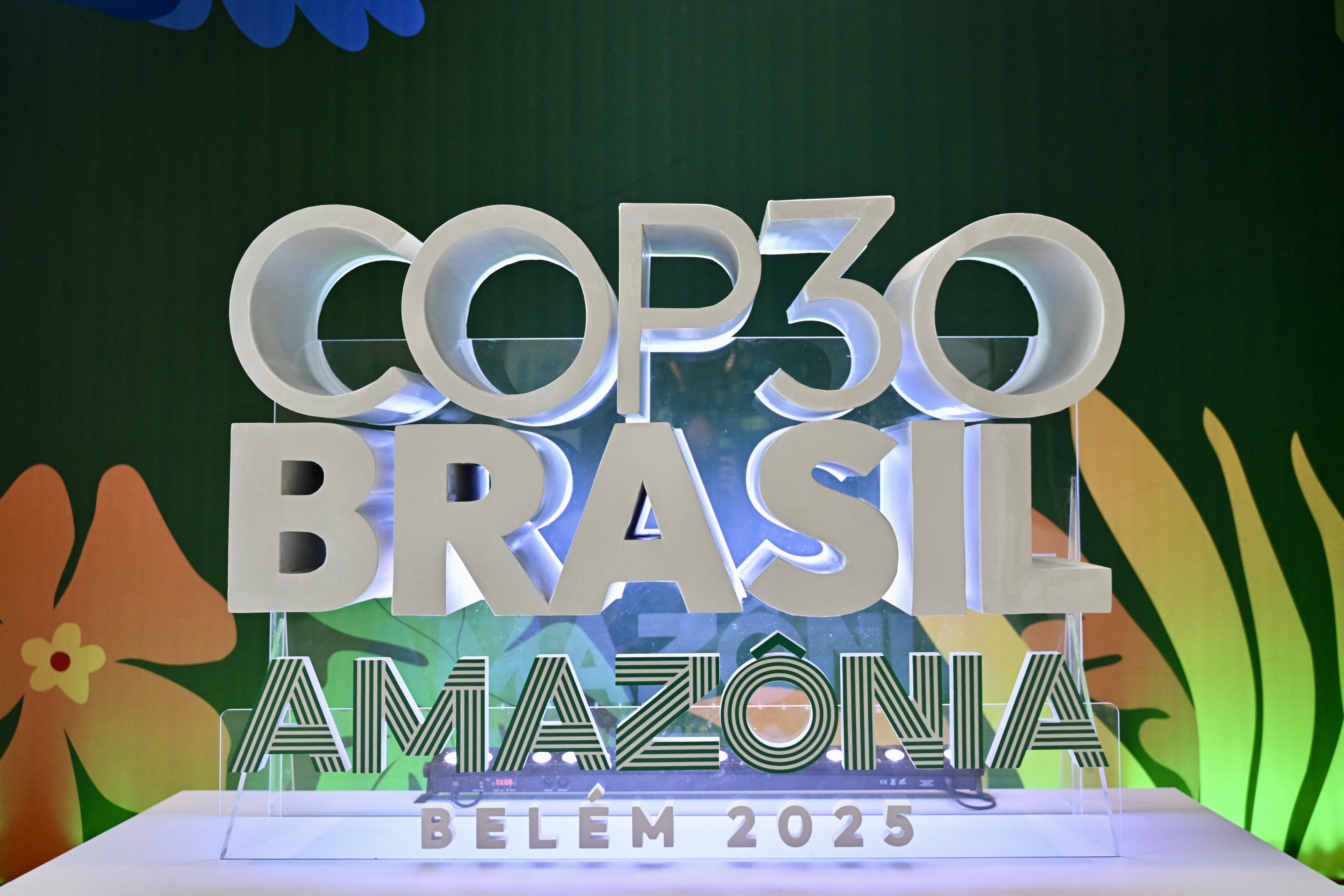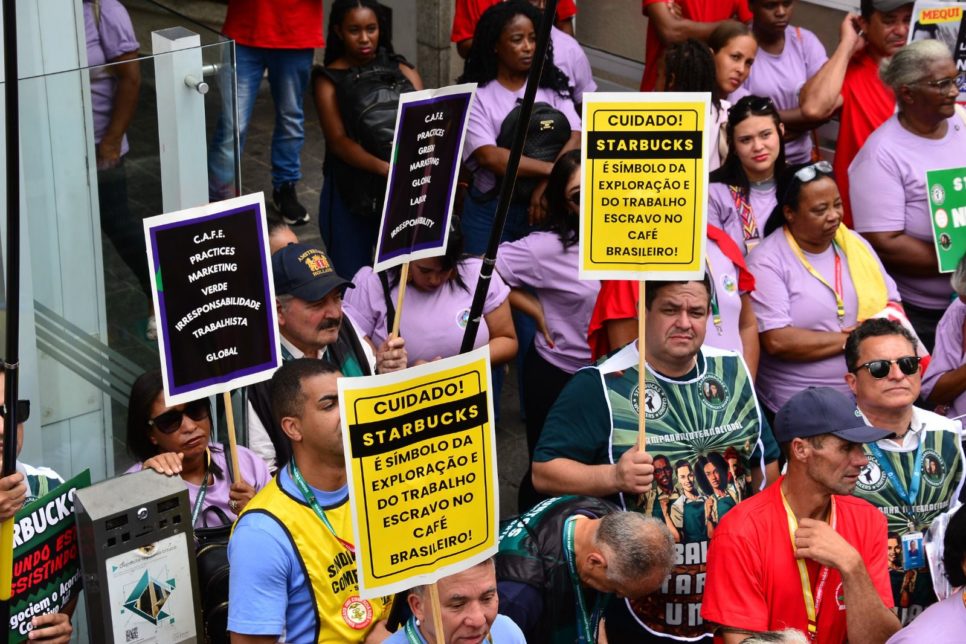COP30 agreement moves forward in terms of transparency, but fails to protect human rights
Entities recognize progress in the document signed by Brazil and the UN, but ask for more robust clauses against retaliations and lack of access during the conference in Belém
 This image shows the COP30 logotype, displayed at the pre-COP30 preparatory meeting which brings bringing together ministers responsible for climate negotiations, in Brasília, Brasil, on Octubre 13, 2025. Brazil is banking on next months much-hyped climate summit in the Amazon to show the world that unity in the face of climate crisis is still possible. (Photo by Evaristo Sa / AFP)
This image shows the COP30 logotype, displayed at the pre-COP30 preparatory meeting which brings bringing together ministers responsible for climate negotiations, in Brasília, Brasil, on Octubre 13, 2025. Brazil is banking on next months much-hyped climate summit in the Amazon to show the world that unity in the face of climate crisis is still possible. (Photo by Evaristo Sa / AFP)
Civil society organizations are submitting a letter to the Executive Secretary of the United Nations Framework Convention on Climate Change (UNFCCC) with a warning on relevant gaps in human rights protections and asking for stronger accountability mechanisms in similar future agreements.
The document is a response to the recent publication of the full text of the Host Country Agreement (HCA) for the UN COP (Climate Convention) at the UNFCCC website. The publication was received with satisfaction by civil society organizations, which for years have called for more transparency and participation in these processes. The agreement, signed by Brazil and the UN in June, establishes the legal, logistical, and security grounds for the conference, which will be held in Belém (PA).
However, the letter, signed by over 30 organizations, also brings up positive aspects of the agreement and additional points of concern.
Read more
The positive aspects highlighted by the entities include: the demand for accessible prices for food, accommodation, transportation, and interpretation services and the inclusion of a new article ensuring inclusive and non-discriminating planning and organization of meetings, with adequate space for indigenous peoples, local communities, and people with disabilities.
On the other hand, the text points to relevant faults in sensitive areas: though free and electronic visas were expected, there will be no alternatives for people without access to the Internet, which could hinder the participation of vulnerable groups and lead to a grey area on consequences when violations are perpetrated by host country agents.
Finally, the text recommends that future HCAs should include clear commitments to the rights of freedom of expression, peaceful assembly, and participation without discrimination.
“Now that we have full access to the HCA, it is imperative to make sure it is broadly disclosed and implemented, fully observing human rights”, the organizations state.






